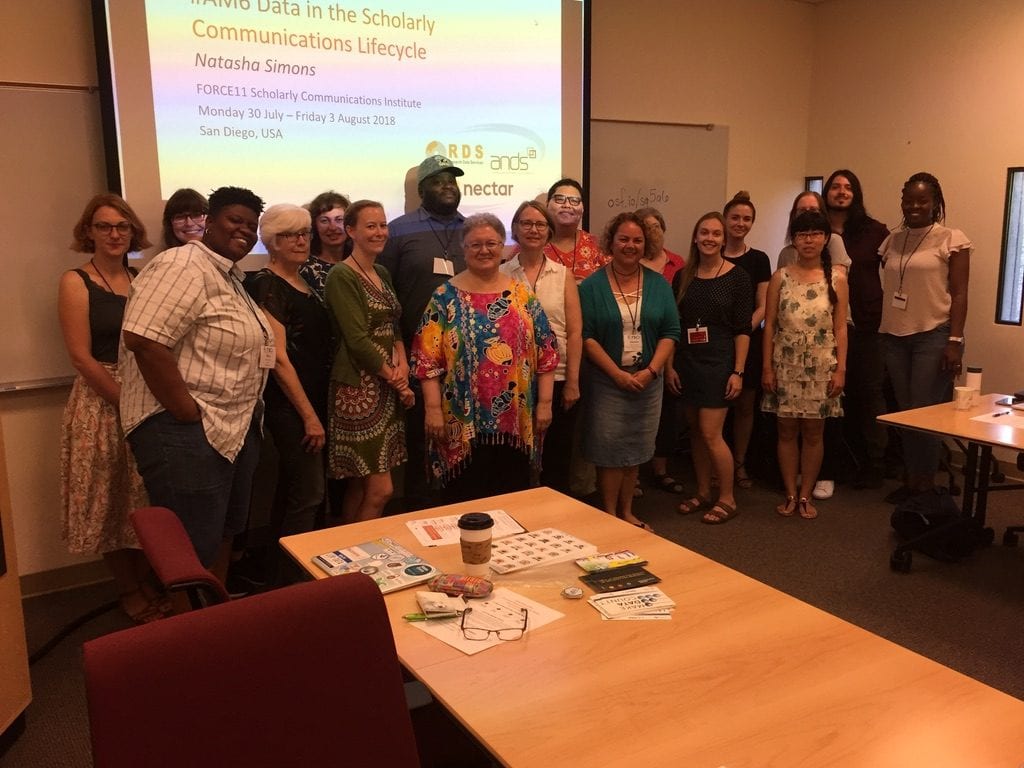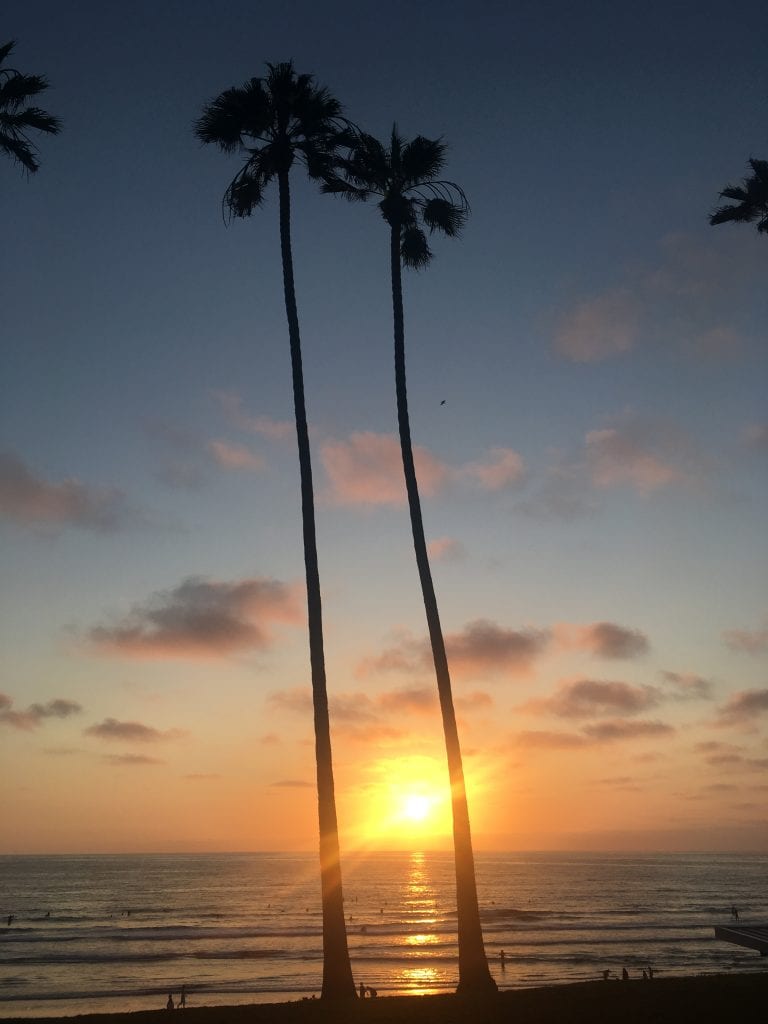FORCE11 Scholarly Communication Institute (FSCI) 2018
By Patrycja, on 16 August 2018
A couple of weeks ago I attended the second FORCE 11 Scholarly Communication Institute (FSCI) held at the University of California, San Diego – a week long training course with workshops led by experts in their fields. FSCI was attended by librarians, researchers, students, post docs, and administrators from all over the world. This presented an excellent opportunity to learn about scholarly communication practices and processes at institutions not only in the United States but also in countries like Australia, Argentina, Canada, Chile, China, Nigeria, and Russia.
Participants of the FORCE 11 summer camp selected three courses from an extensive course list. All classes were very intensive, run in form of workshops and required high level of active participation and beforehand preparation from attendees. Morning classes ran through the whole week, afternoon ones took place over two days; this allowed for in-depth learning experience, and gave an opportunity for stimulating discussions. Evening activities included a slideshow karaoke (which was fun!), do-a-thon (a work-sprint where people with different skills work together on different projects), and a party at Scripps Institution of Oceanograhy that included Scripps Pier tours and famous fish tacos.
My morning classes, Data in the Scholarly Communications Life Cycle, were expertly and entertainingly led by Natasha Simmons from Australian National Data Service (ANDS). The sessions were based on the 23 (research data) Things programme developed by ANDS, with guest speakers that introduced specific topics related to data managment. The classes provided us with an opportunity to work with data managment plans, create metadata for existing datasets (which proved more difficult than we all thought!), and of course stimulated many discussions.
We discussed licensing, the approaches to signing the commitment and FAIR data assessment tool, and how the research data lifecycle offers a framework for assisting with how to understand research processes. The highlight of the course was the open data debate, in which we argued for and against making your research data openly available. The classes helped me understand the issues and challanges around making research data open, and the nuances involved in the processes and licensing.
My first afternoon class, held on Monday and Tuesday, was on the Open Science experience in Latin America and the Carribean, and was taught by a group of librarians and researchers from Argetnina, Canada, Chile, and United States. We learnt about the long history of Open Science in Latin America and the Carribean, and discussed national laws in Argentina, Brazil, Mexico and Peru that seek to make scientific knowledge produced with public funds openly available. The instructors also highlighted regional projects such as Scielo and redalyc.org that have played an important role in making open access the most established communication model in the region.
Micah Vandegrift, Open Knowledge Librarian at North Carolina State University and Samantha Wallace, PhD candidate in English at University of Virginia led my Wednesday – Thursday workshop on Public Humanities as Scholarly Communication. The class turned into a thought provoking discussion on nature of humanities, and the public. It made me reflect on the role of the public in public humanities, and how public is intrinsic to humanities; engaging public and communities should be a natural part of academic investigation.
Discussions in and outside of classes were inspiring, as is meeting people who are passionate about increasing access to knowledge and learning about the practices that differ from your own. The level of workshops delivery was excellent; observing different styles of teaching and how instructors engage with their audiences made me develop new ideas for training sessions that I provide for UCL academics. I found this intensive and demanding course, converstations with instructors and attendess extremely stimulating. And all of this in sunny California, where you see hummingbirds on your way to the class, on a university campus half an hour from the beach.
Further details on the workshops, including links to materials, will be available on the blog next week.
 Close
Close







